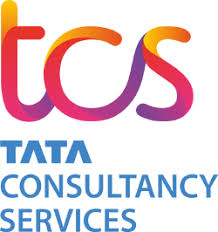Automate mapping data processing
%201%20(1).png)
Grab, a leading food delivery and rideshare company in Southeast Asia, uses OpenAI’s GPT-4 with vision fine-tuning to process millions of street-level images collected from drivers, enabling it to accurately identify traffic signs and lane dividers and reduce manual mapping labor. This approach yields more reliable, hyperlocal map data that supports their ride-hailing, delivery services, and enterprise clients.
.png)
Improved lane count accuracy by 20% and speed limit sign localization by 13%, automating their previously manual mapping process.
24
AI use cases in
Transportation & Logistics

%201%20(1).png)
Uber uses OpenAI's ChatGPT Enterprise to enhance customer support by providing AI assistants that offer empathetic and efficient responses, automate investigations, and augment human agent capabilities. The AI also helps personalize and optimize interactions across their multi-sided platform.
%20(1).png)

%201%20(1).png)
Deployed Dynamics 365 Supply Chain Management to centralize warehouse data and integrated Microsoft 365 Copilot for Finance (with an Excel-based finance agent) to automate monthly reconciliations and financial workflows.
%20(1).png)

%201%20(1).png)
Cathay Pacific Airways integrates Microsoft 365 Copilot to enhance efficiency and customer experiences. Copilot automates routine tasks, helps employees work smarter, streamlines meetings by summarizing highlights and action items, and condenses lengthy reports into concise summaries, freeing up time for strategic activities.
%20(1).png)
151
companies using
Data Agents

%201%20(1).png)
wealthAPI implemented a next‐gen contract detection solution by integrating DataStax Astra DB on Google Cloud and leveraging Google Gemini models for AI‐powered analysis. They deployed DataStax’s vector search and real‐time insights capabilities to scale contract detection across millions of users in less than three months, streamlining wealth management workflows by dramatically reducing response times and efficiently handling massive data volumes.
%20(1).png)

%201%20(1).png)
Aura Intelligence integrated Anthropic's Claude via Amazon Bedrock into its data pipeline to automatically classify over 200 million job titles and industry pairings from multi-language data, replacing manual lookups and fuzzy matching. They fine-tuned foundation models on proprietary datasets and leveraged AWS infrastructure, including SageMaker and prompt management, to automate QA, report generation, anomaly detection, and real-time hiring trend analysis.
%20(1).png)

%201%20(1).png)
LaunchNotes leverages Claude in Amazon Bedrock in their product 'Graph' to transform engineering data into actionable insights. Graph functions as an ETL platform with Claude managing data pipelines, helping engineering managers understand development metrics, reduce incident identification time, automate updates, and generate customized release notes and technical documentation.
%20(1).png)
78
solutions powered by
OpenAI

%201%20(1).png)
Notion reimagined its platform by deeply integrating OpenAI’s GPT‑4o, GPT‑4o mini, and embeddings across its core features. They prototyped an AI writing assistant during a hackathon and then built internal tools to rapidly evaluate and deploy new models, transforming workflows in search, note-taking, and knowledge management from static content to interactive, actionable insights.
%20(1).png)

%201%20(1).png)
Zendesk integrated OpenAI's models to create adaptive AI service agents that autonomously manage customer conversations and execute resolution tasks. They implemented a multi-agent architecture featuring task identification, conversational RAG, procedure compilation, and procedure execution agents integrated with existing support workflows through API calls and natural language procedure definitions, while providing real-time chain-of-thought visibility. This solution transitions from traditional intent-based bots to a hybrid model of scripted and generative reasoning, streamlining customer service processes.
%20(1).png)

%201%20(1).png)
Hebbia built Matrix, a multi-agent AI platform that orchestrates OpenAI models including o3‑mini, o1, and GPT‑4o to automate complex financial and legal research tasks. The platform decomposes intricate queries into structured analytical steps and integrates modules like OCR, hallucination validation, and artifact generation to process complete documents, creating an infinite effective context window. This solution streamlines due diligence, contract review, and market research workflows, drastically reducing manual processing time.
%20(1).png)
78
AI use cases in
Asia

%201%20(1).png)
TCS partnered with Google Cloud to integrate advanced AI and generative AI capabilities into retail service offerings. They launched the Google Cloud Gemini Experience Center at their Retail Innovation Lab in Chennai, enabling retail clients to ideate, prototype, and co-develop tailored AI solutions that optimize supply chain, warehouse receiving, customer insights, and content creation. This approach automated processes using tools like Vertex AI Vision for warehouse receiving and leveraged Vertex AI with Gemini 1.5 Pro and speech-to-text to transform service centers.
%20(1).png)

%201%20(1).png)
LY Corporation leveraged OpenAI’s API to integrate advanced generative AI into its flagship services, including a GPT‑4o-powered LINE AI Assistant and GPT‑4 enhancements in Yahoo! JAPAN Search for summarizing reviews and generating travel plans. They also deployed SeekAI, an in-house productivity tool using RAG to rapidly retrieve information from internal documentation, streamlining employee inquiries and operations.
%20(1).png)

%201%20(1).png)
Physics Wallah developed 'Gyan Guru', a hyperpersonalized conversational study companion to address the unique academic and support needs of its 2 million daily users. The system was implemented by indexing over one million Q&As and ten million solved doubts in a vector database, then leveraging a Retrieval-Augmented Generation (RAG) approach integrated with Azure OpenAI to deliver individualized, context-aware responses. This integration streamlined various student interactions including academic queries, product-related issues, and general support, reducing reliance on human subject matter experts.
%20(1).png)
%201%20(1).png)
%202.png)

%202.png)
%201.png)
%201.png)
%20(1)%20(1).png)
.png)


.png)
.svg)


.png)


.png)









%201.png)